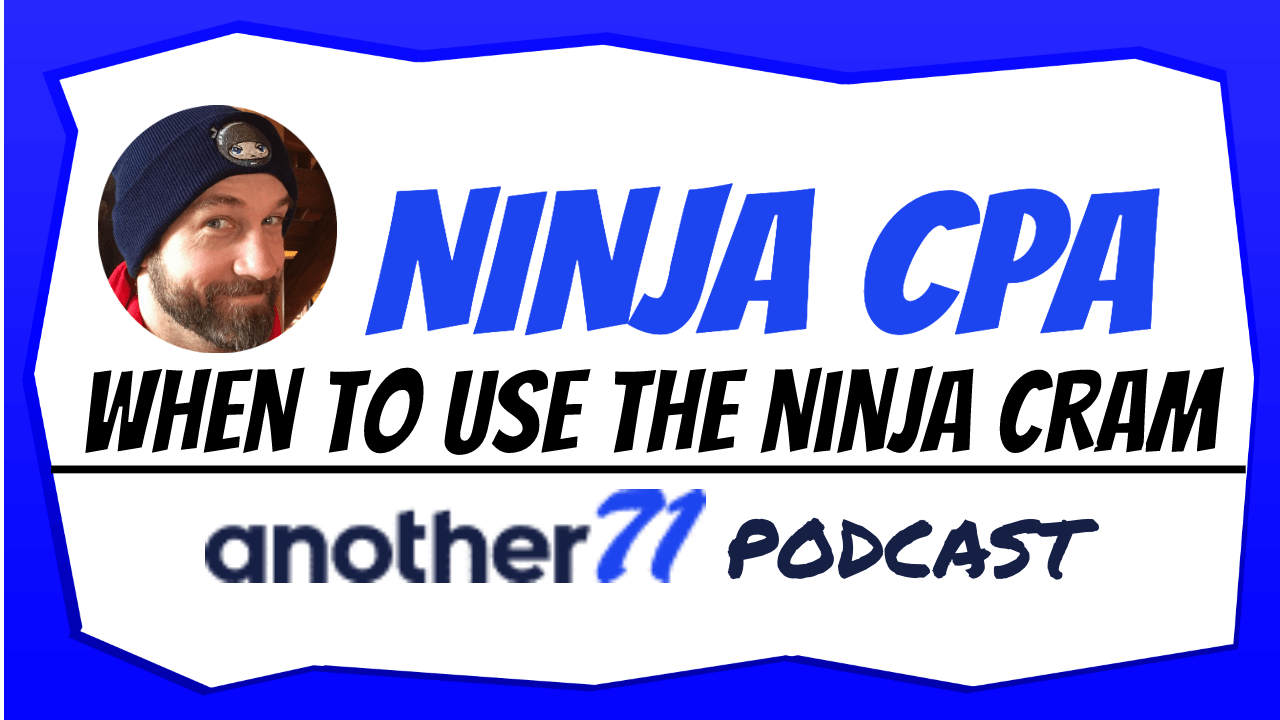
Serena is a NINJA CPA Blogger.
Alright NINJAs,
I have been listening to the Another71 Podcastsand I know Im not the first to mention this in my blogbut if you havent listened, take some time to do so.
Sometimes you may feel like you have your study method down, and you dont need any pointers (like I thought), but listening to Jeffs advice on the podcasts was really helpful for me this week.
I am taking FAR (for the first and hopefully only time) April 6th. I completed re-writing the notes and have still been cranking out the MCQs. But what I found myself doing was allowing the program to choose the questions for me, mixing up the topics.
I would do a 20 or 30 question session and maybe get lucky and get a bunch of topics that I was comfortable with, subsequently scoring higher and boosting my overall trending average. It was giving me a false sense of confidence. Then I would get a not-so-lucky mix and do terrible, bringing my trending average right back down.
When I was listening to one of the recent podcasts, a caller asked what he should be doing in the last two weeks of study time. So I listened up, half expecting to hear something I already knew. Well, Jeffs answer was something I knew, but wasnt admitting to myself that I needed to do. He basically told the caller to identify his weakest areas, and concentrate on those.
So after I listened to that podcast, during my next few study sessions I made it a point to jot down the topics I was getting questions wrong in and not understanding why. The list I came up with (in no specific order):
Partnership accounting methods (Goodwill & Bonus Method): I was having major difficulties remembering the differences for some reason, and the *sort of formulas. I have probably re-written them about 10 times each now. But tonight I re-wrote them with my own pneumonic to help me remember. Then I practiced MCQs.
Bond Retirement & Conversion Methods (Book Value & Fair Value Methods): For this section I re-wrote (again, for the 3rd or 4th time) my notes and practiced a bunch of MCQs.
Consolidations: Yup, thats right. Me too. Who doesnt have problems with this initially? And why do we have problems with it? Is it the big bad scary one? Who knows But I think Im overcoming it, again, re-wrote the notes and practiced, practiced, practiced.
Treasury Stock (Cost & Par Value Methods): For some reason, the Par Value Method was just not making sense to me. I didnt understand how it differed from the Cost Method, and that was where I was struggling. Not really with the cost method itself. So for this one I went back to my book and read in depth about the two methods comparing & contrasting, making new notes that helped me understand more.
Once I realized that the repurchase of the Treasury Stock under the Par Value Method was just like a regular stock issuance, I was able to understand the initial purchase and what the heck the relationship with Retained Earnings was. Then the NINJA Notes made more sense after that. And practice, practice, practice!
Non-Monetary Exchanges: My issuewhat on earth is the deal with the commercial substance, when do I use the carrying value, and when do I use fair value, gain/loss or no gain/loss?!?! Well, I pretty much just did the same thing on this onewent back to the book, made additional notes, and practiced my head off.
So if you are in your last couple weeks of studying, or in your first couple weeks; I encourage you to keep a list of your problem topics and make sure to get really comfortable with them. So comfortable that you actually want to see them on test day because you know you will pick up points.






